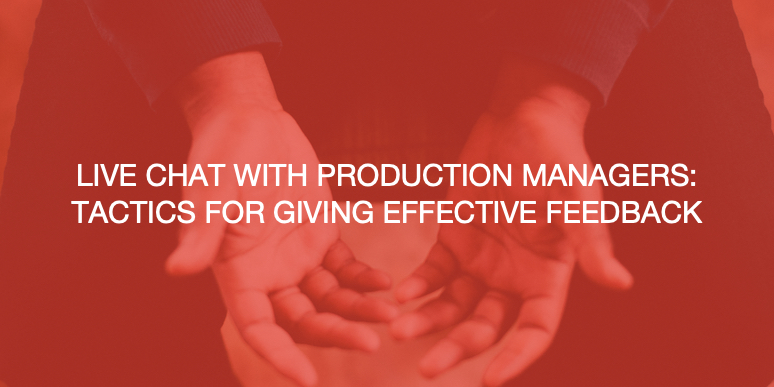
In my career, one of the biggest mistakes I’ve seen event managers make is assuming an upcoming event will be the same as a past one. Whether it’s process or people, something will be new. Yet surprisingly, things often get forced into the same box. It’s a problem I’ve always coached my fellow managers and associates to recognize and avoid.
Let me be clear; I don’t mean managers should ignore patterns. Patterns can help jumpstart early decision-making and help you form the right questions sooner rather than later. Every event has a date, time, location, and contracts, and needs a team to help execute a client’s idea. Patterns raise important questions but shouldn’t necessarily provide answers.
That’s the difference. The questions might be the same. But if you begin assuming the answers are going to be the same as well, you’re going to get yourself in trouble. Clients will not have the same needs. Even if everything about their events might seem similar on the surface!
As the founder of two companies and a longtime lover of startup culture, I began to see a lot of parallels between starting a company and building an event. After doing both for many years, I started to jot down some of these connections. Here’s my quick and dirty guide to what event managers can learn from studying startup culture.
Turning to Startup Culture for Answers
Building a startup (aside from legalities) is all about strategic analysis of your product or service. Does what I have to offer solve a problem or fulfill a need for some part of the market?
Planning an event ticks some of the same boxes. Take a look at this (non-exhaustive) chart below.
Building a Company |
Building an Event |
| Define your mission, vision, and strategy. | Identify the main goals and objectives |
| Assemble an appropriate core team. | Assemble an appropriate core team. |
| Clearly define roles and responsibilities. | Clearly define roles and responsibilities. |
| Build processes appropriate to the structure and needs of the company. | Build processes appropriate to the needs of the event. |
| Establish a budget. | Establish a budget. |
| Assemble your resources (finances, personnel, offices, etc.) | Line up your resources (finances, staff, gear, vendors, etc.) |
Pretty similar, right? An event could be considered a mini startup of its own, one somewhat disconnected to any other business or event that’s been done in the past or will be built in the future.
The Problem of Time
You really can’t start a company (or hope to have a successful one) without walking through the steps above. When starting an event, however, these steps often don’t get enough attention. It could be for any of these reasons:
-
You assume past events have the same needs as the one you’re doing now.
-
You assume everyone involved has worked in the way you like to work, or understands “the way things are done” in the industry. This is especially problematic when event staff are moving between different event sectors.
-
You work with outside entities who already have their own internal structure and you’re afraid to “rock their boat.”
-
You have a lot of other projects going on.
-
It worked well last time, why change it?
-
AND…there’s no time!
All of these are totally viable reasons why you might just plug and play. I get it. I’ve done it many times. Last minute project, limited resources, etc. Especially the feeling of not having enough time.
Here’s the thing. You do have the time. It’s just that you often spend it in other ways. Like having to adjust midstream because you didn’t get all the information up front. This way of approaching an event suggests you spend more time on pre-planning and analysis, leading to less adjustments later on. This won’t work for every project. But how many times have you said to yourself, “If only I’d asked that question before production started?” You could’ve made your event much less stressul. It’s often not how much time you have but how you spend it.
No Mission? No Outline for Success
Another argument for more robust pre-planning. If a company doesn’t know what it’s trying to do, how can it possibly measure whether it’s been successful or not?
The same can be said for producing an event. Before you even get into the details like what A/V equipment you’ll need, you need to know what the main goal is. And it’s normally related to the experience or actions you want attendees to have/take.
Define Measurable Metrics
Businesses need data to assess the viability of their strategies. How many of their products do they need to sell for a plan to be considered successful? Take your event planning business. How many clients, secured at what average rate do you need to secure?
Events need the same attention to detail. Work with your client to determine what metrics are important to track. Not only will it help you formulate a marketing effort, it will help you report back on tangible goals.
Put Together the Right Team
Once a startup has established its goals, the most important next step is sourcing the right talent. It might be one other person. It might be an entire team. It’s an effort to match the needs of the company with certain skill sets, qualities, and personalities.
Event teams should be built the same way. What needs to get done and who are the best people to do it? I’m a big believer in hiring whom you trust. But I’m also a big believer in having a large rolodex (did I just date myself?). I don’t just know one lighting designer. I know many. And they are all awesome and supremely talented. And they all have a POV that is best suited to different gigs. Remember: the question you ask might be the same (who’s designing my lighting plot?) but the answer might not be.
Build the Process, Get the Right Tools
What happens when two companies attack the same product? You run into this in events all the time. What makes one wedding planner different from another? Startups fight the same fight. Here’s an example.
Imagine you were building the world’s fastest form of transportation. How would you do it? I bet it would be a different approach then mine. Look no further than the Hyperloop project currently underway in California. And see how two competing startups came up with vastly different processes for bringing this amazing concept to life.
Yes, most events you work on will be similar. Especially if you’ve carved out a niche in the market. But even still – don’t assume that a past process can be dropped into a new project without first assessing the needs. Maybe this time around, you’re sending more emails. Or doing weekly phone debriefs. Maybe you had a hands-on client before and now you’re lucky to get him or her on the phone for anything less than an emergency. The point is, don’t just rely on “the last time.”
Startups are so much like events – if someone can dream it up, someone else can figure out a way to make it happen. Creative spark and flexible thinking need to permeate your event planning process from start to finish. Challenge yourself to be more adaptable and you’ll be rewarded with more interesting and complex projects. Event planners can learn a lot from startups, we just have to start looking.



